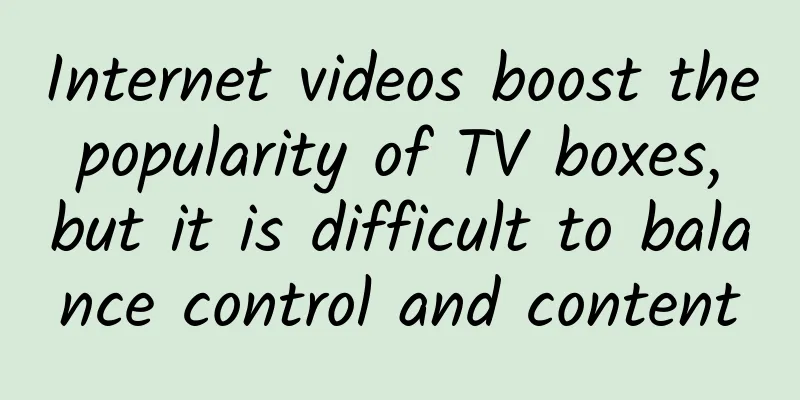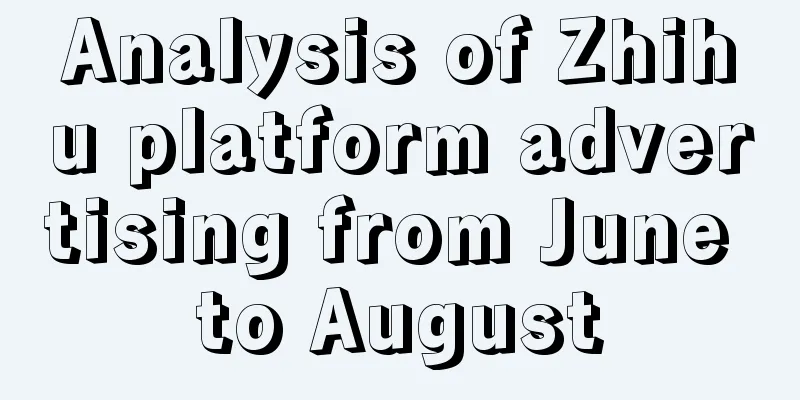Virtual operators that are popular but not profitable need to break through by rapidly iterating their products

|
Originally, the media and industry's attention to virtual operators was beginning to decline, but two pieces of news came out this week: one was the issuance of six new licenses, allowing China Mobile to officially enter the market; the other was the cooperation between Baidu and Share Online, which sparked speculation about the Internet and mobile resale. It seems that this topic is heating up again. For virtual operators, the real money has been spent on publicity, the construction of infrastructure support systems has been invested, and the talents introduced at great expense have entered the door. The opening of the market is auspicious, and they are making a fortune every day. Congratulations on making a fortune. So are virtual operators making a fortune in silence, or are they reflecting and meditating in pain? Let’s look at the business volume first. It is reported that more than a dozen virtual operators have released numbers and have developed a total of 200,000 customers; a more exaggerated statement is that the number of effective users is less than 20,000; and some people have revealed that the income of virtual operators is lower than the settlement expenses to basic operators, and they lose money for each user they release. Looking at product and business design, the legendary Internet thinking has not brought a disruptive impact to the industry. Whether it is the channel companies such as JD.com, Gome , and D.Phone that were full of confidence in the early stage, or the highly anticipated Bus Online, Snail Mobile, and Ali Communication, when the products of these companies were really launched, most of them were disappointed and pessimistic. In summary, there are four types of products and services currently launched by virtual operators to the public market: One is the reconstruction of packages. Whether it is user-defined or automatic upgrade, cancellation of monthly rent or non-refund at the end of the month, virtual operators have turned users' calls and expectations for packages into reality, and used it as the main policy for market promotion, opening up a posture of directly fighting with basic operators. However, these tricks did not bring many customers, and basic operators were also well prepared for the challenge in terms of resources, systems, and services. When the real fight came, virtual operators did not have the upper hand. The second category is resource activation. It is a step further on the basis of package reconstruction, providing users with the choice of resource replacement. For example, the conversion of data and voice services within the package, transfer between users, and the bundling and integration of mobile resale services with the original services of virtual operators. These services are relatively complex, and there are certain difficulties in explaining them to customers and making them accept them. Large-scale promotion will take time; and these services further reduce the profits of enterprises, and even use the original business to subsidize the mobile resale business. These days, no one has a lot of surplus food. The third category is represented by financial interoperability. The real purpose is not to make money from mobile resale itself, but to turn users' prepaid phone bills into funds or financial products, or to focus on automatic credit approval for mobile payments, etc., using the name of communications to engage in financial innovation. Putting the two major innovations (pao) and (mo) of "virtual operators" and "Internet finance" together, it is difficult to judge the specific effect in the short term. The fourth category is to do mobile Internet based on the concept of ICT integration, and borrow a boat to go out to sea. Health, games, smart home, security, Internet of Things, these hot spots can be combined with mobile. Once a company obtains a license, it has a foundation. As for how to develop products and how to promote marketing, it is not clear at present, so let's try it out. Ashes return to ashes, dust returns to dust. If we want to reverse the situation where the product is well received but not popular, we must first rationally analyze the reasons for the current passivity. First, the price of mobile resale business is too high to afford. The general judgment of the industry before was that the basic operators were unwilling to open and support the mobile resale business, so in order to compete for limited licenses, applicants would agree to any conditions; since the basic operators were the dealers and took the initiative, even if they strongly proposed a high resale price, the applicants had to agree. In fact, the price sold to virtual operators was even higher than that of some group customers, which made it impossible for virtual operators to have a price advantage, and thus limited their operating space. Secondly, the mobile resale line is isolated and cannot be played. The enterprises that apply for mobile resale licenses have their own traditional core businesses. In the initial stage of testing the waters of virtual operators, the teams responsible for mobile resale business are often relatively independent. If there is no strong person to coordinate, they may not be able to borrow the strength of the main business. Some virtual operators have internal strife before they go to war, resulting in distraction of energy. Can such a team win the war? The third is that they underestimated the difficulty of operation and were not able to play. People thought that operators made a fortune by relying on monopoly resources, but they realized the complexity of operation when they really started. Many virtual operators have experienced this change of mind. To carry out large-scale operations, not only funds, talents, and resources are needed, but also the operation work must be standardized and process-based. In the past, these were regarded as the crimes of the rigidity and conservatism of basic operators. Now virtual operators have finally understood their value and role, and it is not too late to make up for it. A friend of mine from an investment bank told me that under the market-oriented mechanism, private enterprises will promptly discover mistakes and make adjustments at any time, and this is where their vitality lies. I increasingly agree with his view that virtual operators are actively correcting their mistakes and promoting change. First, they negotiate prices with basic operators, hoping that they will lower prices. In terms of methods, some companies try to get together to get a good price from basic operators after they have achieved scale; others go to the ministry to complain and to the media to cry poor, hoping that the pressure will make basic operators soft-hearted and let virtual operators go. They also adopt a strategy of defeating basic operators one by one, first getting a good price from Telecom, then forcing Unicom to lower prices, and finally attacking Mobile. The second is to implement cross-border alliances, and there are more actions in this regard. There is no need to say much about the horizontal integration within the enterprise. Let's look at the examples of Internet companies getting involved in virtual operations: Alibaba has set up Ali Telecom, Tencent has invested in JD.com, which has qualifications, 360 and D.Phone have reached a strategic cooperation, Share Online has made exclusive packages for Baidu Tieba, and Xiaomi has also raised its hand to apply for a license. Five major Internet companies in five situations are trying to enter virtual operations, which undoubtedly rekindled the industry's attention: the first round of attempts did not achieve the expected results, and these companies are still working hard to increase their investment. What new ideas will Internet thinking bring? As for the operation, firstly, the existing problems are complicated and need to be sorted out step by step; secondly, the operation has just started and the experience is not enough; thirdly, the result of innovation and exploration may fail, but following the rules is definitely not the nature of virtual operators, so we cannot simply and crudely make a final conclusion on the operation strategy and model. If the general direction is right, it is not a big problem to go slowly and encounter some bumps. Virtual operators have matured by not expecting to defeat their competitors in one fell swoop, but by constantly advancing and optimizing through trial and error. Compared with basic operators with a state-owned enterprise management model, trial and error thinking should be the real core competitiveness of virtual operators. As a winner of Toutiao's Qingyun Plan and Baijiahao's Bai+ Plan, the 2019 Baidu Digital Author of the Year, the Baijiahao's Most Popular Author in the Technology Field, the 2019 Sogou Technology and Culture Author, and the 2021 Baijiahao Quarterly Influential Creator, he has won many awards, including the 2013 Sohu Best Industry Media Person, the 2015 China New Media Entrepreneurship Competition Beijing Third Place, the 2015 Guangmang Experience Award, the 2015 China New Media Entrepreneurship Competition Finals Third Place, and the 2018 Baidu Dynamic Annual Powerful Celebrity. |
<<: MSN's farewell to China is not a pity; its decline is inevitable
>>: 30 years of smart home development: a booming industry
Recommend
Deep Strike | Why QQ is obsessed with young people
How to log out of QQ? The answer was found some t...
Why are most of the mobile phones sold around the world made in China, South Korea and the United States? Don’t other countries make mobile phones?
[[441305]] According to the global mobile phone s...
Those Years of the Tomb Raiders VIP
Online fantasy novel "Those Years of the Tomb...
How to write good copy: Understand the five psychological factors and hit the user's pain points
In this era of text proliferation, there are too ...
Is it expensive to produce the Jixi snack mini program? Jixi snacks applet production cost and process
There are two types of Jixi snack WeChat applets ...
Domestic cars can also be so cool. Roewe i6 opens a new chapter of intelligent interconnection
At the 2016 Guangzhou Auto Show, SAIC Roewe relea...
Taobao virtual no-source e-commerce online course 4 video_Turtle Course
A year's plan begins with spring. You have re...
Ideal ONE overturned a motorcycle due to a broken axle, and the official accused it of being a rumor. The person involved responded that it was indeed man-made.
On February 4, Ideal Auto officially announced th...
"Health from eating" series | What to do if you have a sore throat? Four things to do and two things to avoid when protecting your throat in autumn and winter
With the arrival of autumn and winter, the number...
3-step strategy to build a complete content operation framework
Content has always been an important system in th...
Well-known APP marketing director teaches you: How to plan an efficient marketing operation plan?
What? Reading and understanding this article can ...
How Rice and Arabidopsis Change After 120 Days of Space Travel
On December 4, rice and Arabidopsis seeds that ha...
With dual cameras again, can Honor V8 lead the brand to charge into the high-end market?
When talking about Huawei and Honor, the word tha...
Mobile product operation: 9 factors affecting ASO optimization
An app with a good ranking in search engines can ...
Is Apple finally going to add facial recognition to the MacBook Pro?
According to foreign media iLounge, in 2020, Appl...









